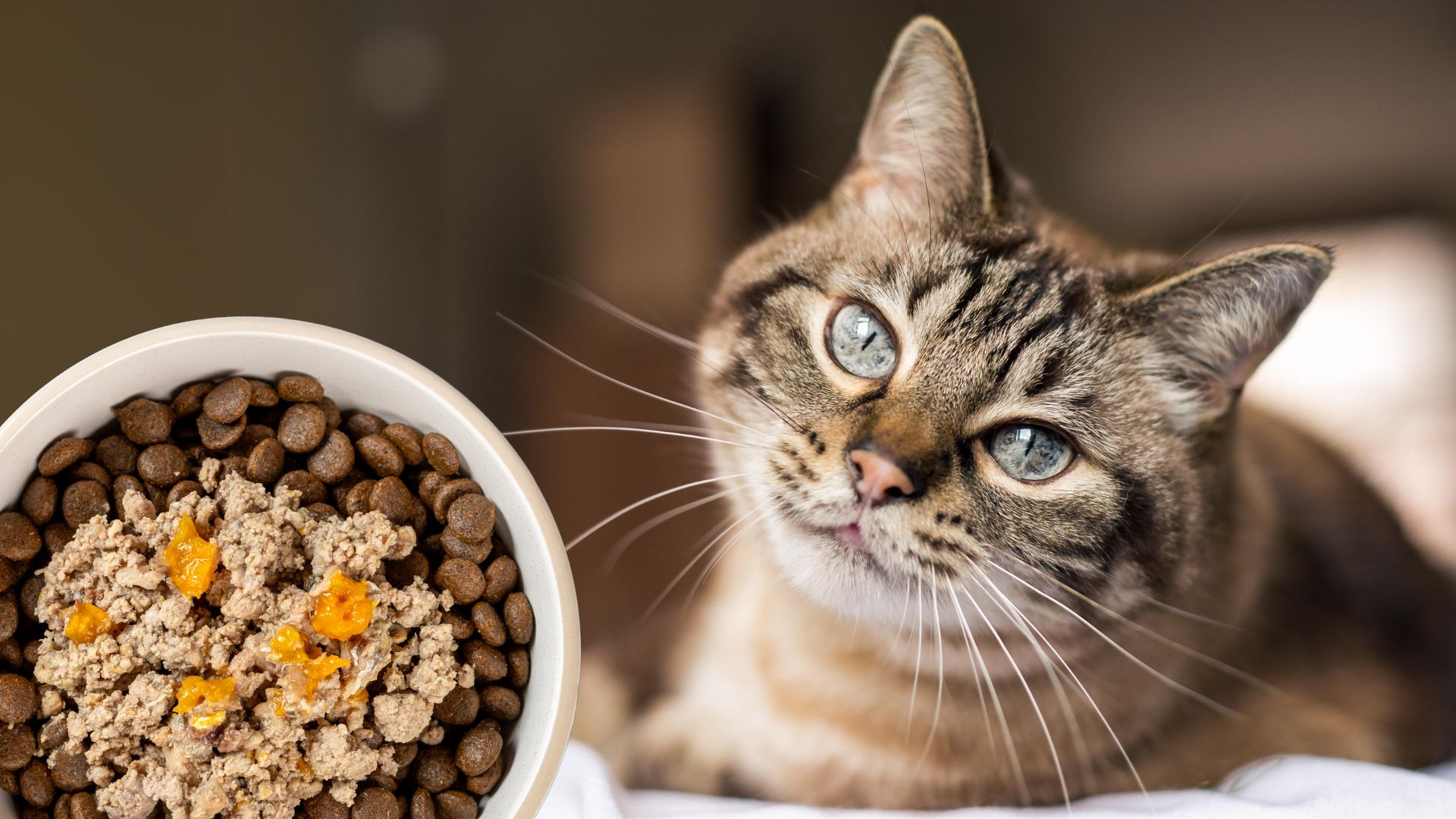Let’s face it—chubby cats are cute. Those round bellies, wobbly walks, and oversized stretches might make us smile, but feline obesity is no laughing matter. In fact, being overweight can significantly impact your cat’s health, mobility, and lifespan.
If you’re wondering whether your cat is simply “fluffy” or actually overweight, you’re not alone. Here’s how to tell—and what you can do about it.
Why Feline Obesity Matters
An overweight cat may look adorable, but the extra pounds can put your pet at risk for serious health problems, including:
-
Diabetes mellitus
-
Arthritis and joint pain
-
Heart disease
-
Urinary tract issues
-
Liver disease (hepatic lipidosis)
-
Reduced quality of life and lifespan
The good news? With early action and the right approach, you can help your cat reach a healthy weight—and feel better every day
Signs Your Cat May Be Overweight
Not sure if your cat is carrying too much weight? Here are some telltale signs:
1. You Can’t Feel Their Ribs
Run your hands along your cat’s sides. You should be able to feel the ribs without pressing hard. If you have to dig through a layer of fat, your cat may be overweight.
2. They Have a Sagging Belly
A small belly pouch is normal in cats, but a swaying or bulging belly that hangs low could indicate excess weight.
3. They Lack a Waist
Look at your cat from above. Do they have an hourglass shape behind the ribs—or are they more oval or round?
4. They’re Less Active
Is your cat sleeping more and playing less? Weight gain can reduce energy levels and make movement more difficult.
5. Your Vet Has Expressed Concern
Annual checkups often include weight checks. If your vet has mentioned your cat’s weight before, it’s time to take action.
How to Confirm: Body Condition Score (BCS)
Vets often use a Body Condition Score—a 1-to-9 or 1-to-5 scale—to assess a pet’s body fat. A healthy cat usually scores 4–5 out of 9, meaning their ribs are easily felt, and they have a visible waistline.
You can ask your vet to show you how to assess BCS at home—it’s a simple and useful tool.
What Causes Weight Gain in Cats?
A few common culprits:
-
Overfeeding (free-feeding or too many treats)
-
Low activity levels, especially in indoor-only cats
-
Poor-quality food high in carbs or fillers
-
Age (metabolism slows down in older cats)
-
Neutering/spaying, which can reduce energy needs
-
Medical conditions, like hypothyroidism or arthritis
Solutions: How to Help Your Cat Lose Weight Safely
1. Visit Your Vet
Before starting any diet or exercise plan, rule out underlying health issues. Your vet can also help you determine your cat’s ideal weight and set a realistic goal.
2. Portion Control
Measure your cat’s food with a cup or scale—don’t just eyeball it. Follow the feeding guide on the label as a starting point, then adjust based on your cat’s needs.
Avoid free-feeding and try scheduled meals twice a day.
3. Choose the Right Food
Look for high-protein, low-carb formulas. Many brands offer weight management diets specifically designed to support healthy fat loss while maintaining muscle mass.
Talk to your vet before switching foods—especially if your cat has medical needs.
4. Cut Back on Treats
Treats should make up no more than 10% of your cat’s daily calories. Try healthier alternatives like small bits of cooked chicken or a few pieces of their regular kibble.
5. Encourage Play and Movement
Get your cat moving with interactive toys, laser pointers, feather wands, or treat puzzles. Even 10–15 minutes of play a day can make a big difference over time.
Try rotating toys and creating climbing spaces or window perches to keep them active and engaged.
What Not to Do
-
Don’t put your cat on a crash diet. Rapid weight loss can lead to fatty liver disease, a serious and potentially fatal condition.
-
Don’t restrict food without supervision. Always work with your vet for safe, gradual weight loss.
-
Don’t ignore the issue. Weight problems rarely resolve on their own.
Final Thoughts
It’s easy to overlook a few extra pounds—especially when your cat seems content. But a healthy weight means more energy, less risk of disease, and a longer, happier life.
With a little patience, consistency, and veterinary guidance, your cat can safely shed the weight—and gain a whole new lease on life.
Because when it comes to love, keeping your cat healthy is the greatest gift you can give.
